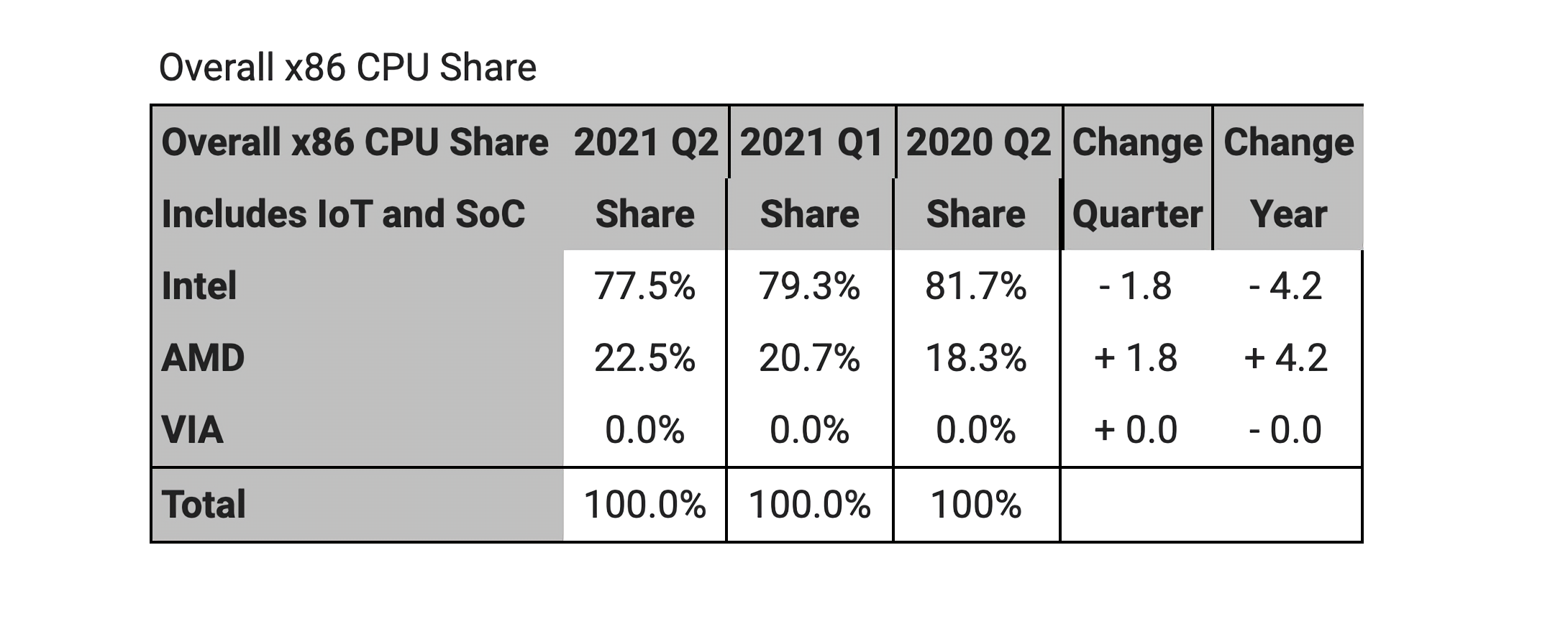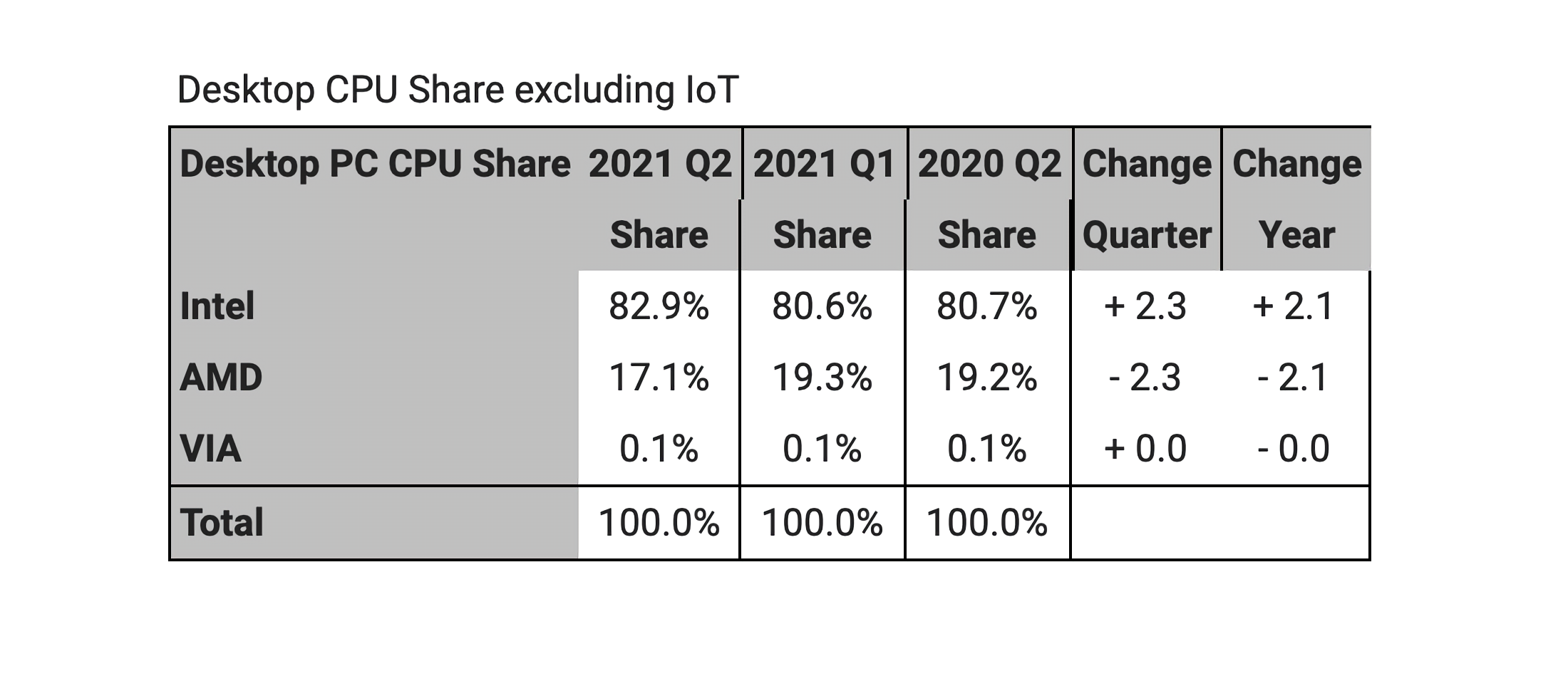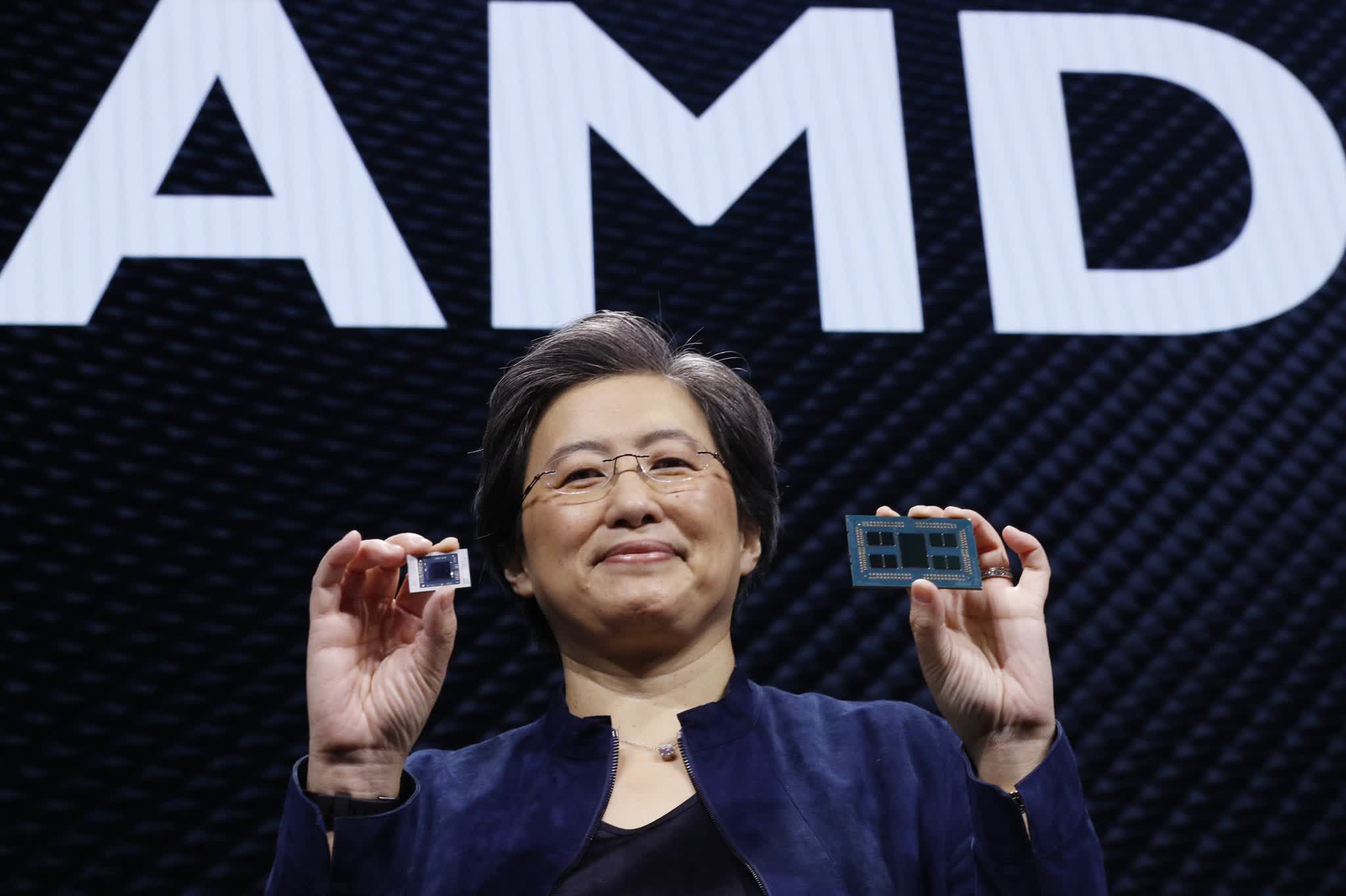In brief: AMD's share of the overall x86 CPU market has seen incredible gains over the last few years, and now it has reached 22.5 percent – the highest point since the Athlon 64 days. To achieve this, the company sacrificed some ground on the desktop market and focused on server and mobile processors and custom APUs for consoles.
By now, it's no secret that AMD is smashing Intel in retail desktop CPU sales, even after Intel started offering discounts on several of its 11th and 10th generation offerings. Team Red's processors dominate Amazon's best-selling charts and are now preferred by workstation builders. And Epyc processors are stealing Xeon's thunder in the data center, albeit slowly.

With that said, the latest data from Mercury Research shows AMD has managed to capture 22.5 percent of the overall x86 market in the second quarter of this year. This level is the highest recorded since 2007 and close to its peak of 25.3 percent achieved in 2006. That leaves Intel with a 77.5 percent share, as VIA is essentially non-existent in the global scheme of things.

The report also offers a breakdown by market segment, which shows that AMD has slipped a bit in terms of desktop CPU market share, going from 19.3 percent in the first quarter to a little over 17 percent in the second quarter. It's not a huge surprise since AMD CEO Lisa Su explained back in May, the chip shortage forced the company to prioritize sales of flagship CPUs, which sell in lower quantities when compared to the lower-end offerings.
Intel isn't affected as much by the chip shortage as it has fabs of its own to rely on, which has allowed it to claw back some of the market share lost to AMD. Mercury Research President Dean McCarron says AMD made up for that deficit with increased shipments of mobile and server CPUs, as well as custom chipsets for consoles like the Xbox Series S/X and the PlayStation 5.
Beyond the x86 market, the Mercury Research report also includes an interesting bit about Arm-based CPUs, which are now estimated to account for 7 percent of all desktop CPU shipments, primarily thanks to Chromebooks and Apple's M1 Macs.
